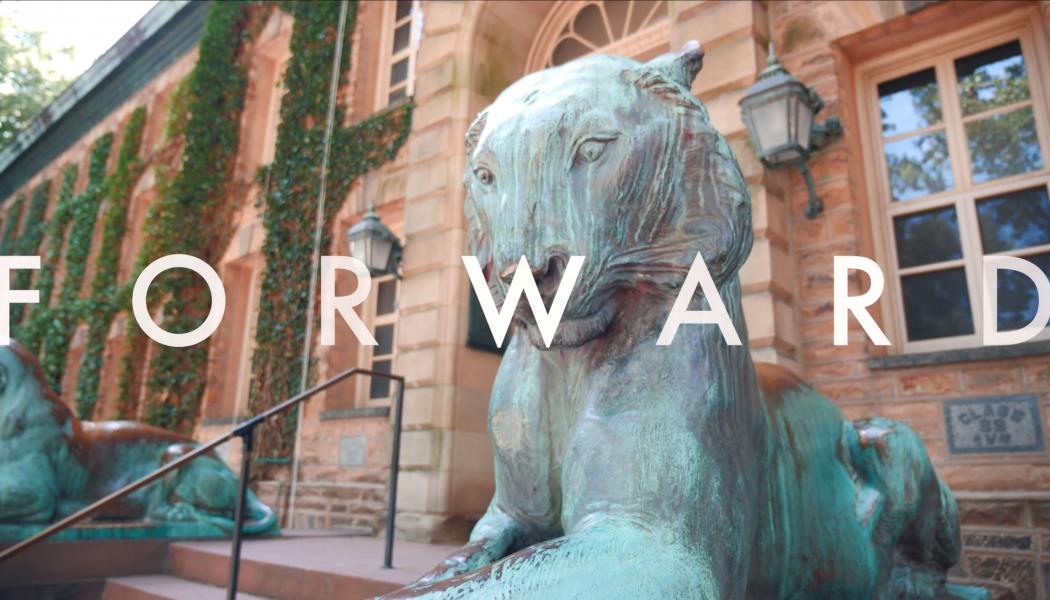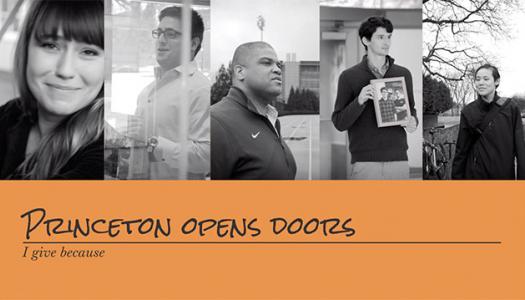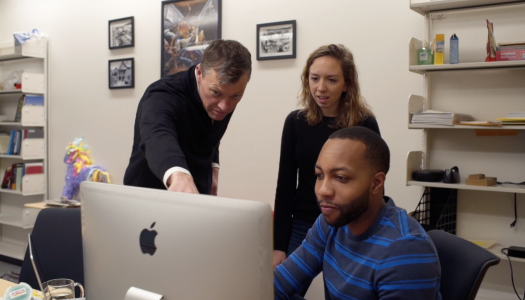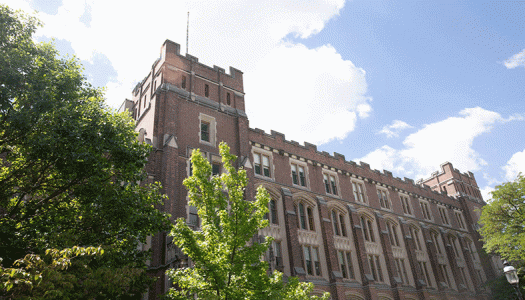
A Year of Forward Thinking, which launched in September and will span the 2020-21 academic year, is rooted in the informal motto of the University: “In the Nation’s Service and the Service of Humanity.” With unity and resolve, Princeton is dedicating this year to rethinking our future by advancing ideas that push the boundaries of knowledge in such topics as COVID-19; social justice; access, affordability, and inclusivity in higher education; environmental studies; democracy; humanities and creative expression; data science; and bioengineering.
The video begins with scenes that capture the challenges of this year: COVID-19, racial justice, and devastating floods and fires. It depicts Princeton scenes during both World Wars, capturing the historic resilience of the community and demonstrating how the University has risen to the challenge in times of adversity.
The video also shows how in the present, the interdisciplinary strengths and expertise of Princeton’s community members are making a difference. Those forward thinkers, in order of appearance in the video, are:
• Ruha Benjamin, associate professor in the department of African American studies, whose book, “Race After Technology: Abolitionist Tools for the New Jim Code,” examines how human bias is infused into the algorithms that shape modern technology
• Duncan Haldane, the Eugene Higgins Professor of Physics, who was awarded the 2016 Nobel Prize in Physics for his study of phases of matter and phase transitions
• John Higgins, associate professor of geosciences, whose team collected ancient ice core samples from Antarctica to better understand the Earth’s carbon cycle
• Sonia Sotomayor ’76, Associate Justice of the United States Supreme Court, who helped recast Princeton’s informal motto to “In the nation’s service and the service of humanity”
• Princeton University President Christopher Eisgruber ’83, Microsoft president Brad Smith ’81, and Maria Perales Sánchez ’18, whose suit challenging the federal government’s 2017 termination of the Deferred Action for Childhood Arrivals (DACA) program led to the 2020 U.S. Supreme Court ruling that reinstated protections from deportation for “Dreamers”
• Frances Arnold ’79, who was awarded the 2018 Nobel Prize in Chemistry for her research of enzymes than can be used in the more environmentally friendly manufacturing of chemical substances and renewable fuels
• Gabriel Vecchi, professor of geosciences and at the Princeton Environmental Institute, whose climate research includes the increased frequency of extreme weather events as temperatures and sea levels rise
• Cecilia Rouse, dean of the Princeton School of Public and International Affairs, the Katzman-Ernst Professor in Economics and Education, and professor of economics and public affairs, whose authority on the economics of education is helping clarify the future and financial feasibility of higher ed for students and their parents
• Kenneth Norman, Huo Professor in Computational and Theoretical Neuroscience, whose team is building computational models that simulate learning and memory in the brain
• Eddie Glaude, Jr., the James S. McDonnell Distinguished University Professor and chair of the department of African American studies, whose thoughtful understanding of America’s history of racial strife has made him an essential voice in the current conversation around racial justice
• Jhumpa Lahiri, director of Princeton’s Program in Creative Writing, whose writing and teaching emphasize the art of translating languages to better appreciate ideas and foreign culture
• Cornel West *80 and Robert P. George, McCormick Professor of Jurisprudence and director of the James Madison Program in American Ideals and Institutions, two prominent intellectuals from opposite sides of the political divide who have combined for a series of conversations to advocate for free speech, civil discourse and civic engagement
• Meredith Martin, associate professor of English and director of the Digital Humanities Center, who founded the Princeton Prosody Archive, a full-text searchable database of thousands of digitized books in English published between 1570 and 1923 that is revolutionizing how scholars understand the evolving relationship between the written and the spoken word
• Tessa Desmond, associate research scholar in the Program in American Studies, who teaches courses on the future of the American food system, runs her own farm and is active in the local food movement
• Tracy K. Smith, the Roger S. Berlind ’52 Professor of the Humanities and chair of the Lewis Center for the Arts, who traveled to rural America to build bridges between people from cities and towns through the sharing of poetry
The Year of Forward Thinking initiative will also spotlight events, including “Forward Fest,” an online series that kicks off on October 23-24 and will continue throughout the year. The events, featuring conversations with Princeton faculty and alumni from an array of disciplines, will stream online and be available free to the public.
More information about A Year of Forward Thinking and Forward Fest can be found at forwardthinking.princeton.edu, which introduces the community engagement campaign and provides examples of bold ideas in research, teaching and engagement.
What are you thinking forward? Share your stories, ideas and inspiration with @Princeton and @Princetonalumni using #PrincetonForward; and email forward@princeton.edu.


